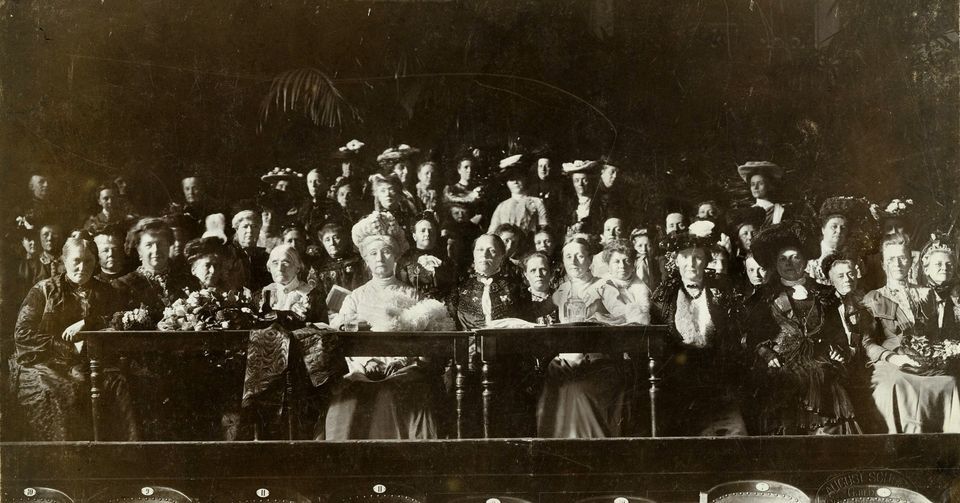
Date: -Location: Collegium Hungaricum Wien, Hollandstraße 4, 1020 Wien, Austria
The language of the workshop will be English.
Presentations at the workshop will be based on the participants’ original research with primary and secondary sources. They will transgress state borders which historically cut different activists and activisms apart from each other. Contributions will adopt an interdisciplinary approach with examining the relationship between local, national, and transnational/international dynamics of women’s activism in the territory of the Austro-Hungarian Monarchy and in its successor states. By discussing these issues, a more comprehensive picture on women’s activism in the Monarchy and in the successor states will be received. Furthermore, the relation of women’s movements to nation-building in the multi-ethnical setting of the Monarchy will also become more visible. The workshop will feature panel presentations and discussions and keynote lectures, providing opportunities for an intensive dialogue and to synthetize the latest research and scholarship in the field.
If you are interested in the event, please register by November 8, 2024 at 12 noon at the following e-mail address:
PROGRAMME
11. NOVEMBER, 2024, COLLEGIUM HUNGARICUM WIEN
9:30–9:50 Welcoming remarks:
Márton Méhes
Iván Bertényi Jr.
Dóra Fedeles-Czeferner
9:50–10:20
Keynote presentation: Johanna Gehmacher (University of Vienna): Interpretations. Communication, Conflict, and Translation in the Contact Zones of Transnational Women’s Movements Around 1900
10:20–12:00
Women’s Movements and Activists in the Habsburg Period. Continuities and Ruptures in International Networks in the Habsburg and Post-Habsburg Periods (Chair: Peter Becker, University of Vienna)
10:20–10:40
Chiara Paris (Center for Advanced Studies, Bolzano): Pioneering Political Participation: Women’s Struggle for Equality in 19th and 20th Century South Tyrol during the Austro-Hungarian Monarchy and Italian Annexation
10:40–11:00
Dóra Fedeles-Czeferner (Hungarian Research Network, Institute of History, Budapest): Conflict, Cooperation, Circulation: Progressive Women’s Movements in Austria and Hungary
11:00–11:20
Agatha Schwartz (University of Ottawa): Austro-Hungarian Women’s Activism from the “Periphery”: The Cases of Adél Nemessányi, Milica Tomić, Jelica Belović-Bernadžikovska, and Nafija Sarajlić
11.20–12.00 Discussion
12.00–13:00 Lunch break
13:00–15:00
Women Activists, Organizations, and Networks in Minority or Stateless position I. (Chair: Beáta Márkus, University of Pécs)
13:00–13:20
Julia Bavouzet (University of Vienna): Transnational Claim-Making:Female Voices from the Habsburg Successor States
13:20–13:40
Isidora Grubački (Institute of Contemporary History, Ljubljana): Between Pre-World War I Legacies and New Forms of Activism: The Case of Yugoslav Women’s Activism in the Early Postwar Period (1919–1924)
13:40–14:00
Alla Shvets (National Academy of Sciences of Ukraine, Ivan Franko Institute, Lviv): Courage to be Yourself: Nation-Building and International Activities of Ukrainian Women’s Organizations in 1914–1939
14.00–14.20
Alexandra Ghiţ (University of Vienna): Transnational Nationalism, Empire, and their Aftermath in Romanian-Speaking Women’s Organizing in Transylvania (1850–1950)
14:20–15:00 Discussion
15:00–15:15 Coffee break
15:15–17:00
The Role of Press and Translation in Women’s Movements. (Chair: Zsófia Lóránd, University of Vienna)
15:15–15:35
Marián Gladiš (Pavol Jozef Šafárik University, Košice): The Cooperation of Slovak and Czech Women’s Magazines in the late 19th and early 20th Centuries
15:35–15:55
Marta Verginella–Urška Strle (University of Ljubljana): A View from Aside: Social Network around Slovenka, a Trieste-based Women’s Newspaper
15:55–16:15
Žarka Svirčev (Institute for Literature and Art, Beograd): Connecting Stitch: Ethnography and Women’s Activism
16:15–17:00 Discussion
12. NOVEMBER, 2024, COLLEGIUM HUNGARICUM WIEN
9:30–10:00
Keynote presentation: Judith Szapor (McGill University, Montreal): Tracing a Century of Women’s Activism and Mobility in East Central Europe: Continuities, Ruptures, and Legacies
10:00–10:20
Lydia Jammernegg (Österreichische Nationalbibliothek, Vienna): Frauen in Bewegung – An Online Documentation and a Digital Collection on Women’s Movements in the Austro-Hungarian Monarchy and Austria 1848–1938
10:20–12:15
Alternative Networks I: Peace Activists, Socialists, Psychoanalysts. (Chair: Christa Hämmerle, University of Vienna)
10:20–10:40
Peter Moser (Archives of Rural History, Bern): The ‘Women’s Organization for World Order’ and its Attempt to Link the ‘Women’s Question’ with the ‘Agrarian Question’ in the Interwar Period
10:40–11:00
Lea Horvat (Friedrich Schiller University, Jena): Waiting Tables and a Table of One’s Own in Early 20th Century: Women and Coffeehouses in Austro-Hungarian and German Empires
11:00–11:20
Anna Borgos (Institute of Cognitive Neuroscience and Psychology, Budapest): “I think women are wrong to think that suffrage is the solution to their problems…” Interactions Between Psychoanalytic and Feminist Discourses in Early-20th-century Hungary and Austria
11:20–12:15 Discussion
12:15–13:15 Lunch break
13:15–15:00
Alternative Networks II: Peace Activists, Socialists, Psychoanalysts. (Chair: Gergely Romsics, Hungarian Research Network, Institute of History, Budapest)
13:15–13:35
Ingrid Sharp (University of Leeds): “Kwakerspeisung”: Famine Relief in Post-War Europe 1918–23
13:35–13:55
Therese Garstenauer (University of Vienna): Organized Women Government Employees in Cisleithania and the Successor States
13:55–14:15
Clara Anna Egger (University of Vienna): A True Peace Meeting of the East and West
14:15–14:55 Discussion
14:55–15:10 Coffee break
15:10–15:40 Concluding discussion. Moderator: Ingrid Sharp (University of Leeds)
15:40–16:00 Closing reflections. Iván Bertényi Jr., Dóra Fedeles-Czeferner